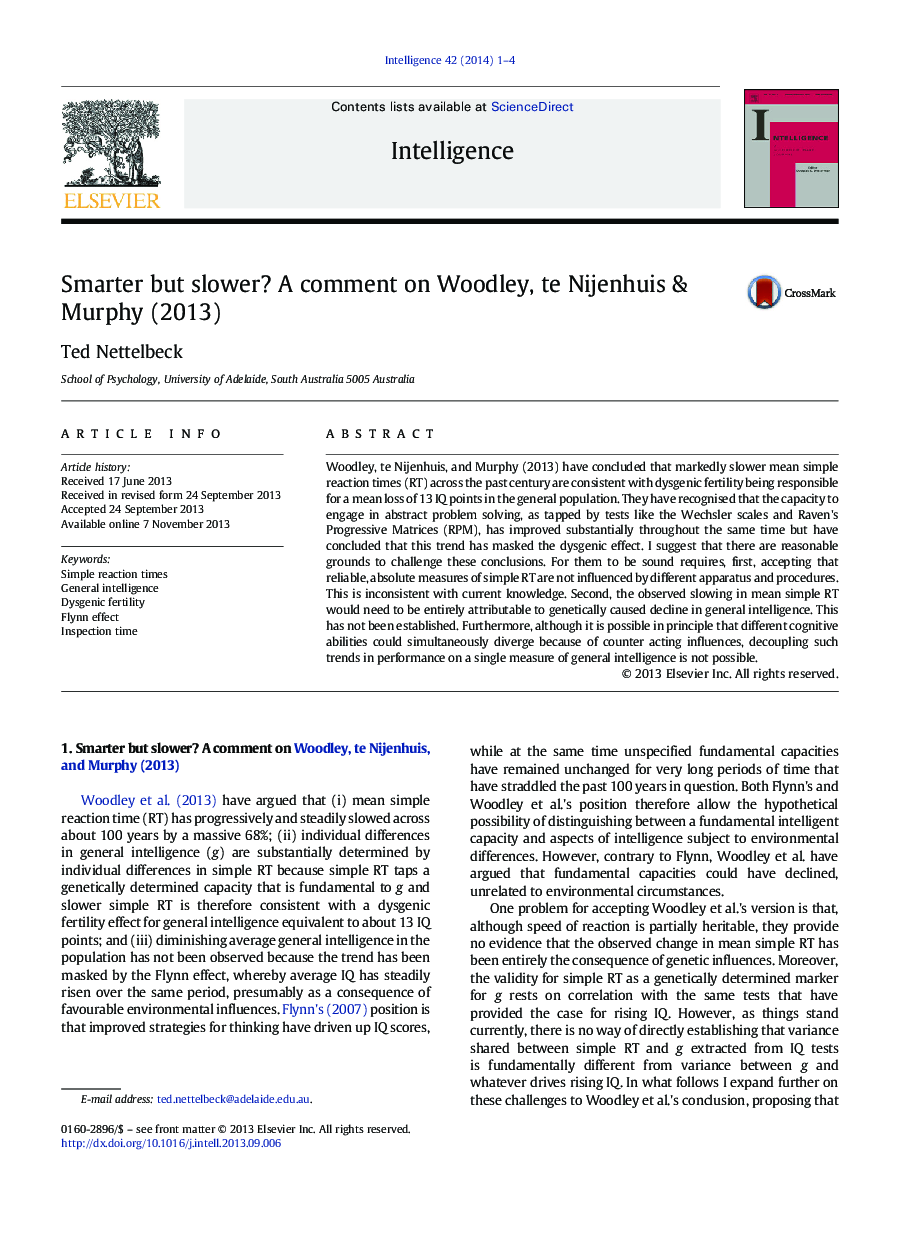| Article ID | Journal | Published Year | Pages | File Type |
|---|---|---|---|---|
| 7294638 | Intelligence | 2014 | 4 Pages |
Abstract
Woodley, te Nijenhuis, and Murphy (2013) have concluded that markedly slower mean simple reaction times (RT) across the past century are consistent with dysgenic fertility being responsible for a mean loss of 13 IQ points in the general population. They have recognised that the capacity to engage in abstract problem solving, as tapped by tests like the Wechsler scales and Raven's Progressive Matrices (RPM), has improved substantially throughout the same time but have concluded that this trend has masked the dysgenic effect. I suggest that there are reasonable grounds to challenge these conclusions. For them to be sound requires, first, accepting that reliable, absolute measures of simple RT are not influenced by different apparatus and procedures. This is inconsistent with current knowledge. Second, the observed slowing in mean simple RT would need to be entirely attributable to genetically caused decline in general intelligence. This has not been established. Furthermore, although it is possible in principle that different cognitive abilities could simultaneously diverge because of counter acting influences, decoupling such trends in performance on a single measure of general intelligence is not possible.
Related Topics
Social Sciences and Humanities
Psychology
Experimental and Cognitive Psychology
Authors
Ted Nettelbeck,
